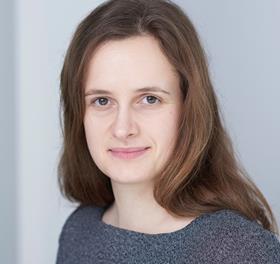The horrific Grenfell Tower fire is a defining moment for our country. It is a symbol of the inequality that exists in our society – and quite rightly an independent inquiry has been convened in response. As the UK’s national human rights institution and the protector of people’s rights, we think equality and human rights should shape that response to this tragedy.

This is why our project, Following Grenfell, is important.
We have had a great response since we started in December. We have heard from the Grenfell community, lawyers, housing experts and many in the voluntary sector, all expressing their relief that human rights and equality issues will not be overlooked.
Human rights are based on the values of dignity, equality and respect, and should be at the heart of the response to Grenfell Tower. When the state holds inquiries and demands answers about the causes of a disaster, it is doing so because people’s lives matter.
The public inquiry will be collecting evidence and hearing from witnesses and experts. We will analyse and comment on this evidence as it emerges, make public submissions of our own and invite others with expertise and experience to contribute to our work. We have identified the core themes we will focus on, including the right to life, the right not to be subjected to inhuman and degrading treatment, the right to adequate and safe housing, access to justice, children’s rights and equality, including the role of the public sector equality duty.
We want this work to be complementary to the official inquiry. We do not want to undermine or duplicate the inquiry’s work, but rather to look at the issues through a different lens and provide meaningful recommendations and insight from a human rights and equality perspective.
Fundamentally, we want to understand:
- What can we expect from our government and public authorities?
- What must the state do to keep people safe and to respond when they are in danger?
We believe that human rights help us answer those questions and we are convinced that they should be at the heart of any official inquiry into what happened at Grenfell.
The public inquiry has held procedural hearings focusing on the participation of the survivors and bereaved families. Participation of victims in any inquiry is essential, as a matter of humanity and respect, and in order to ensure that the inquiry is effective and legitimate. If victims are unable to participate, it threatens the state’s ability to show that it is meeting its responsibility to investigate deaths under article 2 of the European Convention on Human Rights.
Following these hearings we made our first public submission on the right to life, the inquiry’s obligations under the Equality Act 2010 and the participation of the survivors and bereaved. We have set out the practical steps the inquiry must consider to ensure that they can play a full part in the process.
Many of the survivors and bereaved called for the prime minister to appoint panel members with different professional experience and backgrounds to increase public confidence in the inquiry. At the end of December, the prime minister announced that she has decided that she will not do so ‘at this stage’. We were disappointed at this decision and have written to her to emphasise our concern that a lack of diversity could prove a serious blow to the long-term authority and credibility of the inquiry.
We do not question the ability of the chair and the lawyers involved in the inquiry, but knowledge and experience of the affected communities, and the way public authorities serve those communities, are critically important if the inquiry is to maintain public confidence and do its work effectively.
If you would like to contribute to our Following Grenfell project please email the Grenfell team (grenfell@equalityhumanrights.com).
Elizabeth Prochaska is legal director at the Equality and Human Rights Commission































1 Reader's comment